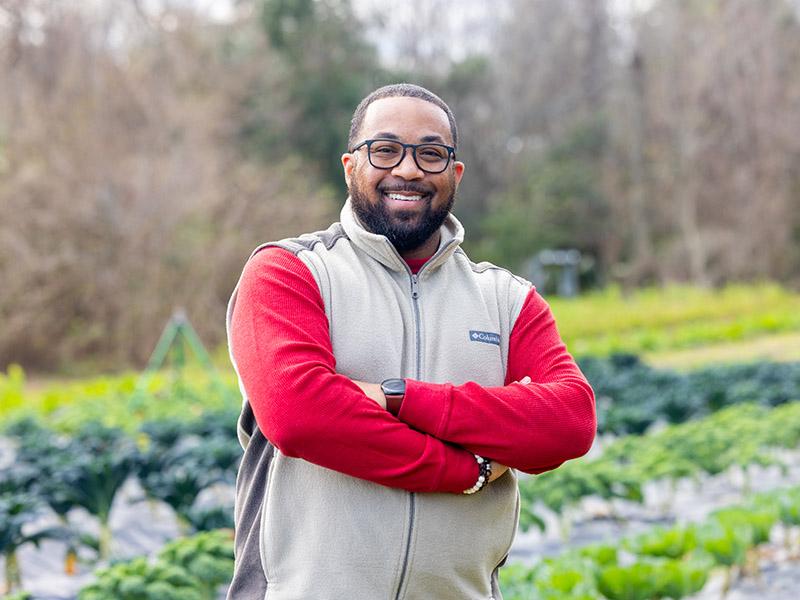Tulane professor tackles inequities in world’s food systems
Growing up in Louisiana’s rural Mississippi River Delta region, Marcus A. Coleman learned early on about the inequalities in the food system structure and how it could leave marginalized residents unable to access or afford healthy food.
Coleman recalled that the grocery store in the town of Newellton, Louisiana offered little in the way of high-quality foods. “People had to drive to the next parish to do most of their grocery shopping,” he said. “If folks didn’t have access to reliable transportation, this further exacerbated the issue of food access.”
The inaccessibility of food had such an impact on him that he made a career of it, studying agricultural economics in college and graduate school, and eventually landing at Tulane University as a professor of practice in the Department of Economics of the School of Liberal Arts (SLA), where he teaches Global Food Economy.
"I felt it was important to stay home and start asking questions about how we can transform the food system.”
Tulane Professor of Practice Marcus A. Coleman
Coleman is also on the faculty of SLA’s Strategy, Leadership and Analytics Minor, also known as SLAM, a program he was drawn to because of his leadership development work at Southern University. In SLAM, his primary appointment, he teaches such classes as Principles of Leadership and Strategic Leadership in Practice. He also serves on the faculty advisory committee of the Environmental Studies Program.
“Coming to Tulane was me branching out to a new venture — which was developing food studies courses around sustainability and the environment and the role that food plays in various aspects of communities,” Coleman said. “We talk about the political, social and environmental impact of how we get the food that we eat.”
His Global Food Economy class addresses the challenge of feeding a growing world population with limited natural resources, with an emphasis on food insecurity in developing nations as well as the United States.
He said his students tend to be passionate about social justice, and he combines leadership development and community engagement with issues of food insecurity and the importance of developing equitable and sustainable food systems. Such systems aim to eliminate disparities and injustices as it relates to food production, distribution and consumption, and to ensure that everyone, regardless of socioeconomic status, race or geographical location, has access to healthy food.
Urban agriculture, he said, has played a major role in food sustainability, and New Orleans is home to a thriving network of urban producers, many of whom grow crops in community gardens or vacant lots. This summer, Coleman will teach Food System Leadership in the Gulf South through the Environmental Studies program, and visits to urban farms will likely be included.
Coleman’s published research includes a paper on the educational needs of new and beginning urban farmers and another on retailing strategies in food deserts, areas that have limited access to affordable and nutritious food.
He is involved in numerous national projects such as the Racial Equity in the Food System Workgroup at Michigan State University, and he serves on several boards such as BREADA, which works to cultivate healthy local food systems through small family farming.
Coleman, who has had faculty stints at Southern University, Michigan State University and LSU, came to Tulane three years ago after interviewing at several other universities, including those outside of Louisiana.
“I was a finalist at a few other schools,” he said. “But I felt it was important to stay home and start asking questions about how we can transform the food system.”

